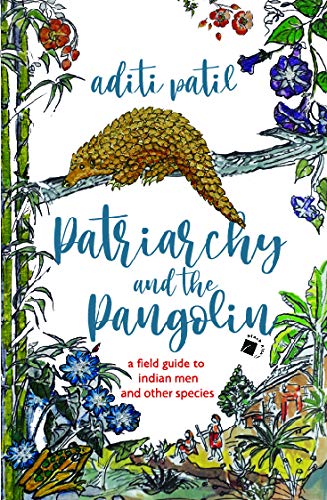Book: Patriarchy and the Pangolin: A Field Guide to Indian Men & Other Species
Author: Aditi Patil
Publisher: Black Kite
Price: Rs 399
Anyone who has spent some time in field research would agree that it is a lot of blood, sweat and tears with plenty of hidden challenges. From logistical hurdles, uncooperative respondents to belated realizations of errors in sampling, Aditi Patil — the author of this delightful and witty book — and her team endure it all in their quest to understand the implementation of the National Agroforestry Policy, 2014 in Gujarat.
Patil sets out to chronicle her months in the field as an environmental researcher in an effort to share the lived experiences of Indian farmers, particularly women, in a manner that cannot quite be captured by the limitations of a data-centric research methodology. Along the way, Patil and Manya Singh, her primary research partner, learn to navigate the patriarchal attitudes and caste sensibilities that pervade rural India, factors that can impede the access of researchers. There is also the reign of red-tapism: it is this lackadaisical attitude of the bureaucracy that continues to threaten the conservation of flora and fauna in India. Policy also impairs livelihoods but it may go unacknowledged — when an agriculturalist in Kheda was asked if demonetization affected his earnings, he vaguely answered that sacrifices need to be made for the country to achieve “big progress”. The nuances of these revealing engagements, sadly, often get buried under mounds of dry data.

Patriarchy and the Pangolin: A Field Guide to Indian Men & Other Species by Aditi Patil, Black Kite, Rs 399 Amazon
Patil’s rationale for choosing the elusive pangolin as the leitmotif for this book — the creature is in least conflict with humans and is yet endangered — is reinforced by the public attitude towards the wild in this country; it is a pity that Patil stops short of asking searching questions on the state of affairs. Nonetheless, Patriarchy and the Pangolin, peppered with bittersweet anecdotes, satire and self-deprecating humour, provides engaging insights into the otherwise drab world of environmental research.










